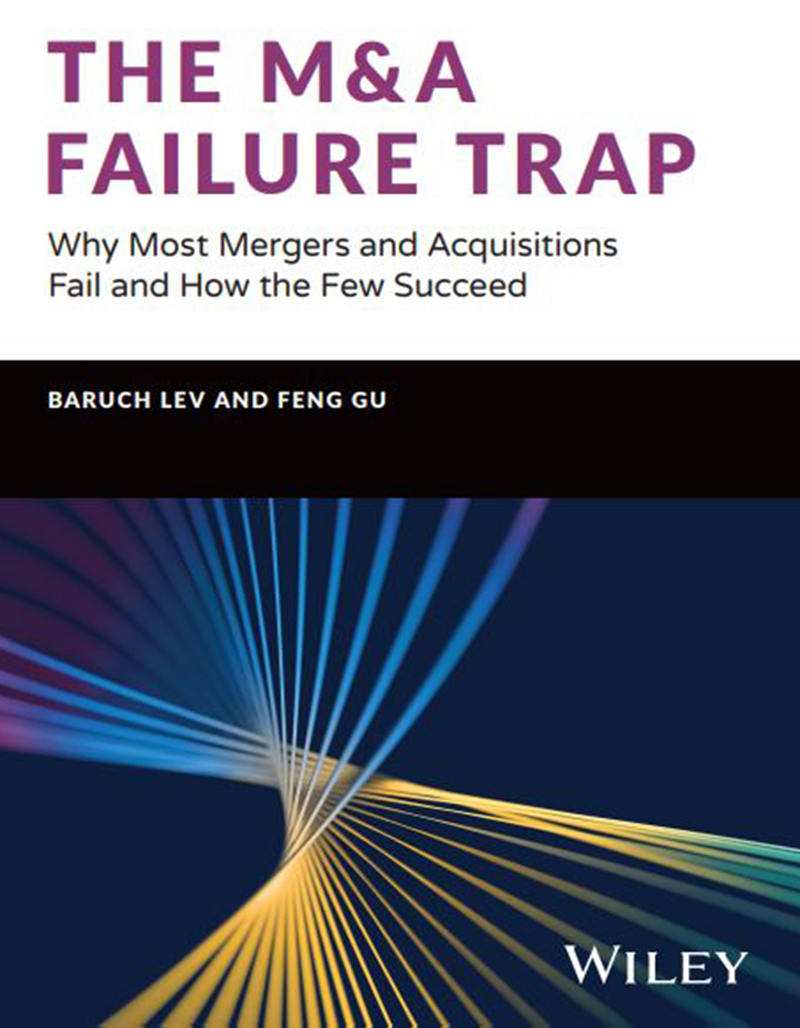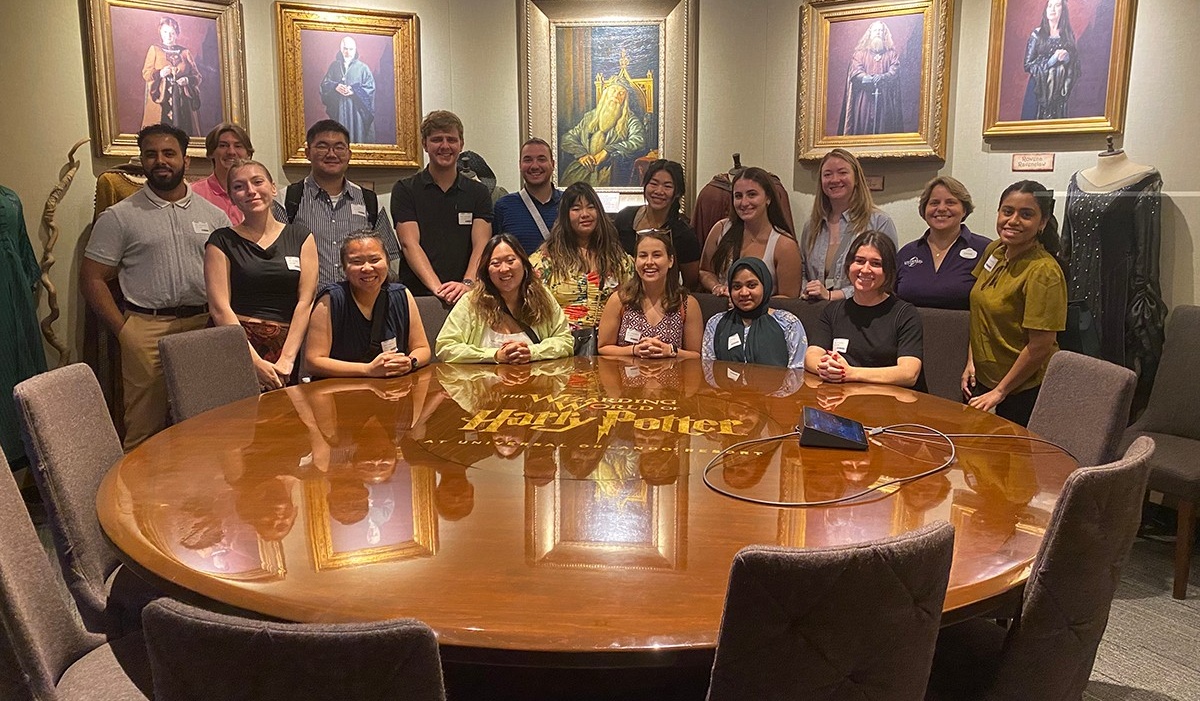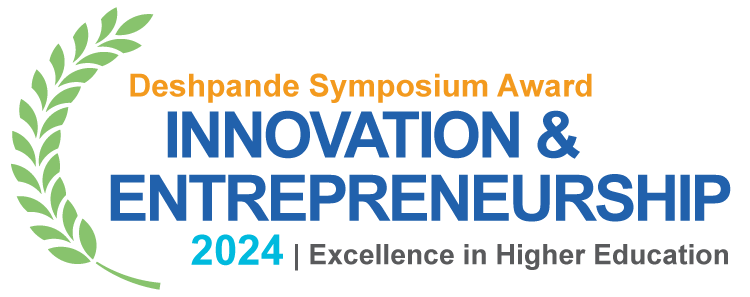Innovation, Entrepreneurship and Leadership

Dive into our burgeoning entrepreneurship ecosystem, get inspired by advances in leadership research or take your innovative idea from concept to market.
Research
School of Management faculty are big thinkers who drive change and bring new ideas to their respective fields, making a positive impact on business and society. Below is a sampling of some of their research.
Examples

A staggering 70-75% of merger and acquisition deals fail to meet expectations, yet new deals continue to dominate businesses, causing corporate setbacks, employee layoffs and losses to investors, according to new research from the UB School of Management.
Feng Gu, chair and professor of accounting and law, seeks to reveal the major drivers of acquisitions’ success and failure in his new book The M&A Failure Trap: Why Most Mergers and Acquisitions Fail and How the Few Succeed (November 2024, Wiley).
“Our goal is to provide top-level management and investors with a blueprint to avoid the missteps that have led companies astray and align strategies to achieve sustainable long-term growth,” says Gu, who co-authored the book.

As businesses and institutions increasingly invest in diversity, equity and inclusion initiatives, new research from the UB School of Management found that while some diversity training programs are effective, others have limited impact or even face backlash — and suggests why diversity training has had uneven results.
Published in Current Opinion of Psychology, the study found that diversity training is most effective when it is part of a broader, ongoing organizational effort. Considering the big picture with longer, iterative training programs that include skill development, such as role-playing and case studies, are more likely to succeed than one-off sessions or “check-the-box” approaches.
“Implementing a single diversity program won’t make a big difference if the company has unfair hiring practices, biased leaders, or even a customer base that holds prejudiced views,” says study co-author Kate Bezrukova, associate professor of organization and human resources. “It’s not realistic to expect a diversity training program to instantly get rid of such deep-rooted biases in an organization — the whole system needs to be addressed for the training to truly be effective.”

Countries that invest in artificial intelligence see a significant impact on their productivity and growth, but they should take a strategic approach, according to new UB School of Management research.
Published in Decisions Analytics Journal, the study found that AI innovation (as measured by the number of AI-related patents and capital investment) works best with the presence of a highly skilled labor force and the proper internet infrastructure to harness its full potential.
“AI innovation has the potential to transform economies, but our study shows that more patents and investments do not automatically translate into higher production efficiency,” says co-author Raj Sharman, professor of management science and systems. “A strategic approach that includes high-speed internet access and skilled labor is key to realizing AI’s full benefits.”
Defying social norms and thinking outside the box are often seen as prerequisites for entrepreneurial success, but being unapologetically weird can be both an advantage and a liability, according to research from the University at Buffalo School of Management.
Available online ahead of publication in Personnel Psychology, the study explores the link between investor funding and perceived weirdness – defined as an individual difference characterized by failing to adhere to widely accepted social norms regarding one’s appearance, speech or behavior such that one is perceived as odd, strange or abnormal.
“People tend to draw conclusions about those who are non-normative,” says study co-author Emily Grijalva, associate professor of organization and human resources. “A person’s willingness to violate, or their inability to follow, norms can enhance their creativity; yet at the same time, weird entrepreneurs are perceived to have diminished competence.”
In today’s complex and unpredictable work environments, understanding how employees respond to unachieved daily work goals is crucial to supporting their well-being and day-to-day productivity.
Published in Journal of Applied Psychology, new research from the UB School of Management found that an employee’s downtime mindset impacts their day-to-day productivity, which can be mitigated by a workplace climate that encourages a future-oriented mindset and offers practical insight for managers seeking to support and retain employees.
“Instead of simply treating a missed goal as a mistake or failure that should be punished, managers need to help employees bounce back and protect them from falling into a psychological downward spiral,” says study co-author Min-Hsuan Tu, assistant professor of organization and human resources.
A moderate increase in servant leadership can have a significant effect on an organization’s revenue, a one-point increase in servant leadership scores (on a seven-point scale) resulted in $11.3 million in additional revenue for the company, about a 6% increase, according to research from the School of Management.
Appearing in Personnel Psychology, the study, led by James Lemoine, associate professor of organization and human resources, examined whether servant leadership makes it possible to focus on multiple stakeholder groups and the degree to which an employee’s focus on others impacts their business decisions.
“We gave employees a decision-making test and were able to show a relationship that we had theorized: those who were more ‘other-oriented’ made smarter, more well-thought-out decisions,” says Lemoine. “Other-orientation gives you experience looking at problems from perspectives beyond your own.”
Real-World Experiences
Examples
School of Management students have a wealth of experiential learning opportunities to take what they’ve learned in the classroom and apply it to business challenges, making an impact in communities around the world.

UB named The Ticketing Co., co-founded by UB School of Management graduate Anthony Calagna, BS ’12, as the fastest-growing business owned or led by an alumnus or former student during the 2024 Fast 46 celebration.
The Fast 46 competition is named in honor of UB’s founding in 1846. Its mission is to recognize successful businesses led or owned by UB alumni or former students. To be considered a Fast 46 finalist, eligible companies must have been in business for at least three years; have verifiable revenues of at least $100,000 or more in 2020 and 2021 and at least $250,000 in 2022; and the owner or leader of the company must be a UB alumnus or former student.

School of Management students have the opportunity to gain global perspective right here in the United States. Through the Experience the 50 program, School of Management students prepare to lead in today's business world.
In the past year, the program has offered four experiences: Tech Trek to Boston; Leadership, Industry and Culture in Chicago; Business Practices in Disney; and West Coast FinTech and West Coast Tech Trek with combined travel to Silicon Valley.
The Henry A. Panasci Jr. Technology Entrepreneurship Competition brings together UB students from science, technology, business and other disciplines to maximize their potential and create viable businesses in Western New York.
Five finalist teams give live pitch-style presentations in April each year, competing for a top prize of $25,000 in startup capital and in-kind services valued at up to $40,000. A $10,000 prize is given to the second-place team.
The school’s Center for Leadership and Global Impact offer programs for students at our partner institutions abroad, empowering them to become more effective leaders in any team, organization or community. In addition, School of Management students may participate in some global programs as volunteers or mentors, helping them to forge connections across continents, gain insights into other cultures and develop their own leadership skills.
Academic Programs and Teaching
In addition to a curriculum robust with opportunities, the School of Management offers an array of micro-credentials, and is home to two centers that serve the community in these critical areas.
Examples
Since 1987, the Center for Entrepreneurial Leadership has been the premier Western New York resource for entrepreneurs like you who are looking to overcome your challenges, inspire innovation, and propel your business to growth and profitability.
Programs include those below and many more:
The Center for Leadership and Global Impact advances research, education and outreach to create more effective leaders and organizations.
Opportunities include:
Smaller than a minor or certificate, a micro-credential provides you an opportunity to gain relevant workforce skills, without the financial and time commitments of a degree.
Partners in Progress
The School of Management works collaboratively within the UB and throughout the community to create innovative and entrepreneurial solutions to today’s challenges and to develop tomorrow’s leaders.
Our partners include:
Speakers and Conferences
To spark conversation and inspire innovation, we bring thought leaders from around the world to campus for various conferences and events.








